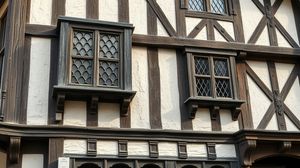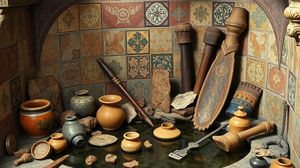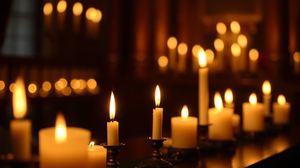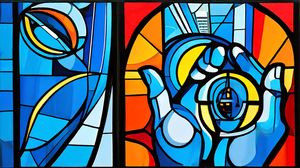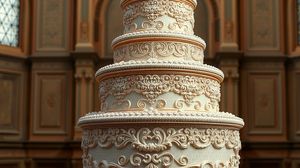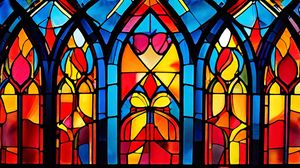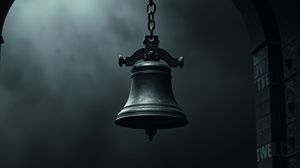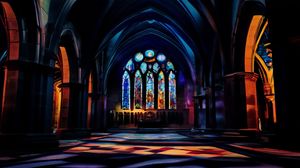
St. Etheldreda's Church is a magnificent example of medieval architecture nestled in a quiet enclave of London. As one of the city's oldest Catholic churches, it dates back to the 13th century, serving as a tangible link to the past in the bustling modern metropolis. Originally built as the chapel for the Bishops of Ely, it stands as a beautiful testament to Gothic design with its stunning stained glass windows and vaulted ceilings.
An interesting facet of St. Etheldreda's Church is its rare dedication to Etheldreda, an Anglo-Saxon princess and saint. Etheldreda, the daughter of the King of East Anglia, lived a life marked by piety and devotion, eventually becoming the Abbess of Ely. Her story brings a sense of historical depth and personal character to the church, underlining its religious and historical significance.
This church retains significant historical importance as it survived tumultuous periods, including the English Reformation. During the Reformation, it was seized by the Crown and ceased to be a Roman Catholic chapel, but it resumed Catholic services in the 19th century. This resilience contributes to its charm, offering visitors a glimpse into the religious transformations that have shaped England.
One of the most visually striking features of St. Etheldreda's Church is its east window, which is a vivid masterpiece of stained glass. This window is recognized as one of the finest examples of Victorian stained glass art in London, depicting a detailed and colorful image of the Last Judgment. Its presence amplifies the church's ethereal atmosphere and attracts art enthusiasts and historians alike.
The church is also noted for its crypt, which adds a uniquely historical dimension to the site. The crypt is not just a place for reflection; it doubled as a venue for numerous historical events and secretive gatherings when Catholicism was oppressed in England. Its function as a sanctuary in times of peril marks the church as a resilient and significant site of Catholic heritage.
Located within Ely Place, a private enclave with historical ties to the Bishops of Ely in Cambridgeshire, the church's location is intriguing in itself. Ely Place enjoys a peculiar status as one of the few places in London not under the jurisdiction of the local borough council, giving the area a unique legal and historical dimension that fascinates many visitors.

Making the Most of Your Visit:
Check the Mass schedule before you go; if you can, try to visit during a service. The experience of the sung Latin Mass here is particularly moving due to the church's acoustics and historic ambiance.
Don't miss the chance to walk around Ely Place itself. It's fascinating because it feels like a step back in time, with a peculiar status not governed by the local council. The history of the area adds layers to your visit.
Pause at the main doorway and look up. The building's exterior, often overlooked, shows medieval stonework details that beautifully contrast with the otherwise modern street surroundings.
Allocate some time to sit quietly in the crypt. Many stories echoed within those walls during times when Catholicism was outlawed. It's an underrated nook for contemplation or to soak up the history relayed in whispers from the past.
Look out for plaques and inscriptions around the church. They tell a host of stories about notable figures who once walked these halls and give insight into the church's broader historical context.

Visiting Times & Costs:
St. Etheldreda's Church is open to the public, generally with no admission fee. Visitors are welcome to explore this historic site and attend services. However, specific church events or services may have restricted access or require advance booking.
Opening Hours:
- Monday to Friday: 8:00 AM - 6:00 PM
- Saturday: 9:00 AM - 5:00 PM
- Sunday: 9:00 AM - 1:00 PM
Accessibility: The church has made efforts to accommodate visitors with disabilities, but due to its historical architecture, some areas may present challenges. Visitors requiring assistance are advised to contact the church staff ahead of their visit to discuss specific needs.
Cost: General entry is free, though donations are welcomed to support the maintenance and preservation of the church.

Address & Map:

Nearby:






